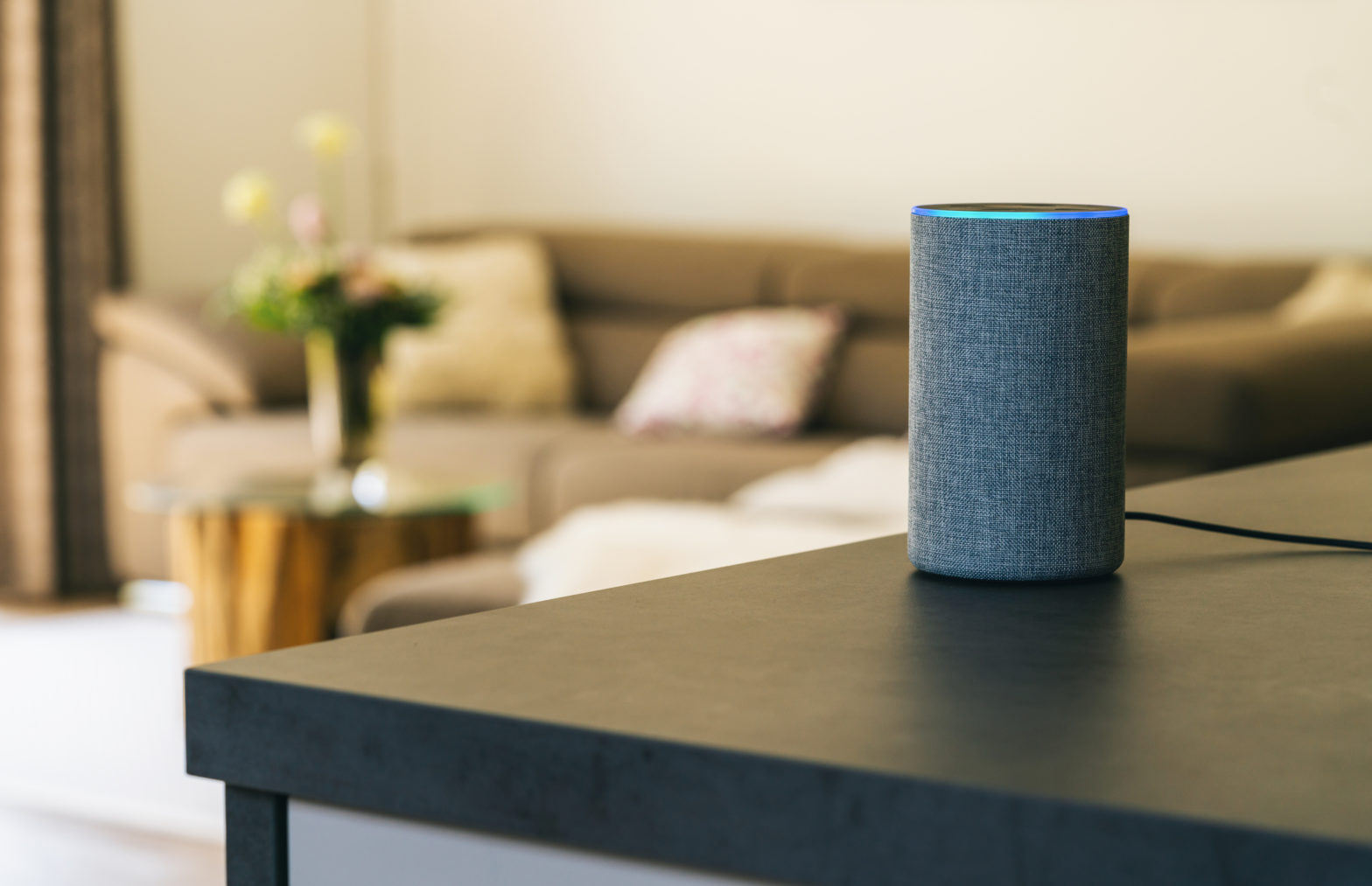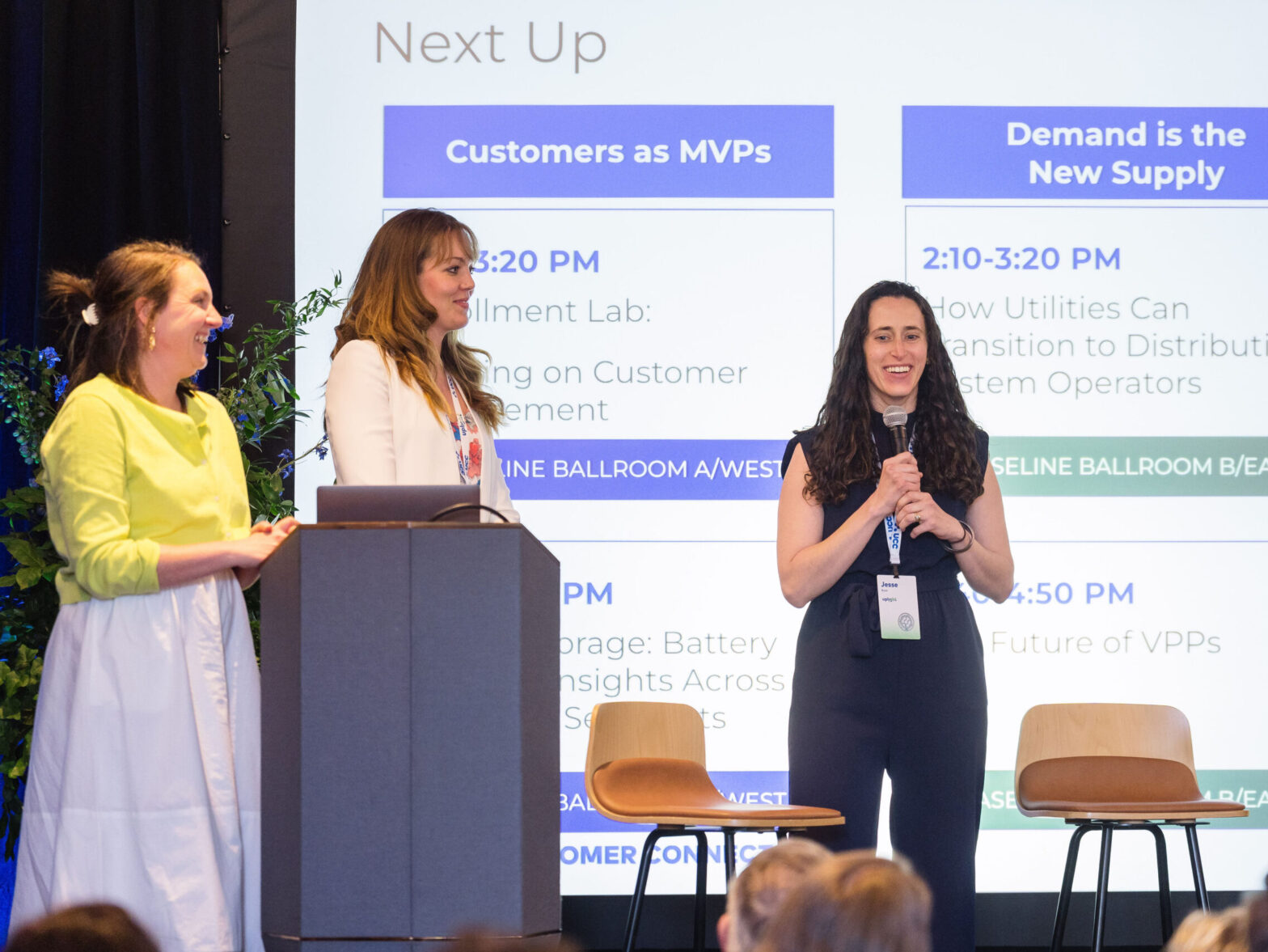This post was originally published on the Ecotagious website. Ecotagious is now Uplight.
This article originally appeared in the Winter 2019 edition of The Distributor
Ontario LDCs are uniquely positioned to take advantage of one the newest consumer communication channels, smart speakers. Smart speaker penetration is on the rise. When combined with Ontario’s access to rich consumption data, this technology offers utilities the opportunity to engage with customers in a dynamic new way.
Enabling customers to ask questions such as, “How does my hot water usage compare to similar homes?” or “How much did I spend on air conditioning this month?” can empower them to make smarter choices. Responses can help drive energy efficiency, lift CDM program participation and elevate customer satisfaction.
Within a year of launch, smart speakers such as Google Home and Amazon Echo had already made their way into eight per cent of Canadian homes. By comparison, a report by Media Technology Monitor found that adoption of tablets was at only three per cent in the first year of availability, while Netflix adoption topped out at six per cent. This is only the start of the smart speaker boom. Parks Associates, an Internet-of-Things market research and consulting firm, predicts that 55 per cent of U.S. broadband households could have a smart speaker with a voice-based personal assistant by 2021.
What makes the smart speaker revolution unique is that this technology can connect with customers in a familiar setting and engage them in a “human” way. This new channel is opening up all kinds of possibilities for B2C companies to engage with their customers in a direct and personalized manner.
Utilities are no exception. Many of Ontario’s LDCs are challenged to connect personally with customers. The transactional nature of utilities’ communications, including billing, notifications and inquiries, often results in a static relationship with customers. The existing channels of mail, email and call centers inhibit the level of customization and insights utilities are able to offer their customers, which, in turn, presents obstacles for utilities seeking to drive behavioral change.
Voice technology has the potential to change customer interaction dramatically. Advances in this area offer utilities opportunities to become more customer-centric, offering personalized insights, customized solutions and relevant programs. This enhanced customer experience has the potential to yield increased energy savings, improved customer satisfaction and fewer calls to call centres, as inquiries can be made anytime and answered immediately by the smart speaker.
As many early adopters of smart speakers have discovered, generic information does not lead to engagement and frequent usage. While many forward-thinking utilities are already engaging customers via voice assistants, those interactions are limited to relatively generic information such as billing, account management, general tips and customer service information. If the end-goal is better engagement and behavioral change, then utilities need to deliver an on-demand, personalized experience using tailored energy-efficiency tips based on customers’ unique energy consumption and home characteristics. In other words, the best way to engage customers is to get personal.
Personalization can be achieved by combining smart meter data with disaggregation — the ability to break the data down into appliance-level insights. Ontario is uniquely positioned in this regard, in that it sits on a goldmine of rich smart meter data. Combined with disaggregation and customer analytics, the ability to leverage this data can radically transform the customer experience.
BC Hydro is the first utility in North America to take the customer experience to the next level by providing personalized, appliance-level energy consumption data via smart speakers.
Customers can now ask their smart speakers relevant questions like: “How much did I spend on heating this month?” or “How does my air conditioning usage compare to similar-sized homes in the neighborhood?” This level of personal interaction through smart speakers can drive further behavioral change, helping customers to keep their costs down and utilities to meet conservation targets.
To achieve this level of personalization, BC Hydro has partnered with Ecotagious, a Canadian clean tech company specializing in smart meter disaggregation, to deliver personalized interactions based on each household’s unique consumption and characteristics. Ecotagious analytics turn existing smart meter data into appliance-level insights that can be delivered across various channels, including email, paper, portal and smart speakers.
Companies with access to rich data and analytics will have the most success using the smart speaker channel to engage their customers. Ontario LDCs are perfectly positioned to benefit from this exciting technology.
Learn more about our Voice Assistant solution.




